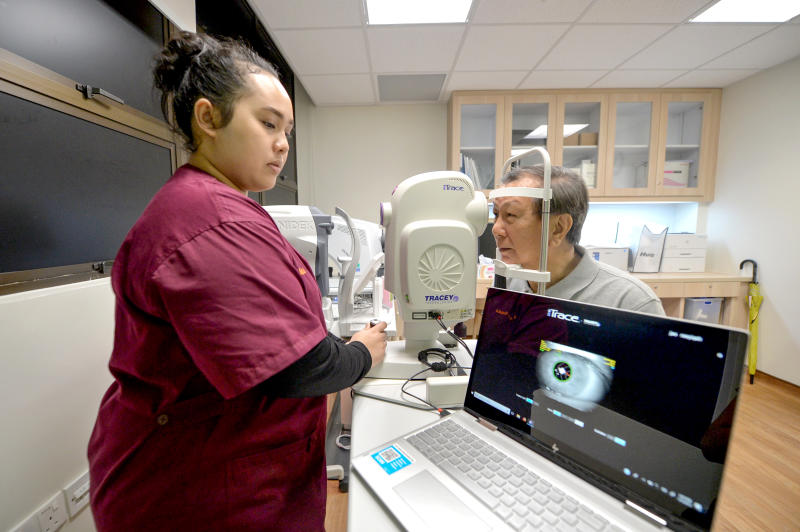Alexandra Hospital to focus on non-emergency procedures for age-related conditions
Sign up now: Get ST's newsletters delivered to your inbox
Follow topic:
SINGAPORE - The newly renovated Alexandra Hospital (AH) has become the first public hospital in Singapore without an Accident & Emergency Department, and will instead focus on non-emergency procedures needed by the Republic's growing elderly population.
This will also help free up space at the National University Hospital (NUH), which is in the same health cluster, to take on more complex cases.
However, patients who feel medically unwell can still visit AH's Urgent Care clinic at any time of day and night.
Its new specialist surgical centres and operating theatre services have been opening progressively since January and are now fully operational.
The 3,630 sq m facility, which was built in the 1930s, has been open since June last year.
A total of 4,820 patients with non-complex problems were directed to AH last year, and this number is projected to increase to 6,627 in 2030 with the opening of new facilities.
The patients include those with age-related conditions like cataract or hearing loss, and those needing knee replacements.
Waiting time for elderly patients at AH has also been reduced as staff can give more attention to non-emergency procedures.

Said Mr Low Hsien Chih, head of AH's surgical operations: "For non-urgent and high-volume cases, you have to wait on average one to two months for the first consultation using a polyclinic referral to a public hospital. At AH, it is less than five working days."
Dr Wong Weng Hoa, head of AH's surgical and operating theatre services, who shuttles between NUH and AH, told The Straits Times: "I work in hospitals with emergency departments and noticed the heavy demands emergency cases have on resources, with high daily bed occupancy rates, emergency attendances, and long wait times. AH is designed to provide an environment to enable non-urgent, yet high-demand cases to be done quickly and efficiently, especially for our growing ageing population."
Dr Wong added that the hospital currently has two day-surgery operating theatres and four major operating theatres, which if used optimally can undertake 600 non-emergency procedures a month. The plan is to have possibly 12 more theatres by 2026, he said.
Some patients will also remain at AH for rehabilitative care after surgery, instead of being transferred to step-down care at a community hospital.
This arrangement is primarily for orthopaedic centre patients who will remain in the same bed throughout the treatment and rehabilitation stages of their recovery.
Retiree Geoffrey Foo, 75, had the waiting time for his cataract consultation cut from six months at the Singapore National Eye Centre to getting a consultation within five working days at AH - and underwent an operation just five days later.
"My actual surgery only took about 15 to 20 minutes and then I was brought out to sit down and recover for about 45 minutes. I was discharged after that. Everything was done within 90 minutes and I was surprised at how well I could see after the surgery," said Mr Foo, who previously worked in property management.

